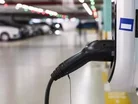China announces plans to end sale of diesel and petrol cars

China has announced it plans to end the sale of petrol and diesel cars, with a timetable currently in development by its Industry Ministry.
The nation will join Britain and France who have already pledged to cease the sale of traditional fuel vehicles, in favour of hybrid and electric cars, by 2040.
China is currently the largest automaker by number of vehicles sold in the world. The Communist Party has stated it hopes to reduce oil imports, and China sees electric cars as an industry the country can become a leader in.
These targets will also help reduce worsening air pollution in China, a growing problem which has already prompted the country to set a target of capping its carbon emissions in total by 2030.
Related stories:
Renault-Nissan agrees electric car partnership with Dongfeng Motor Group
Toyota to focus on electric car production
Ford in talks with Anhui Zotye over joint electric car venture
Last year, China overtook the US as the biggest market for electric cars, with sales of both electric and hybrid vehicles rising 50% over 2015 to 336,000 vehicles, making up 40% of global demand.
While official details of the country’s target are still being developed, Beijing has been allocated new quotas to fill: in 2018, 8% of cars produced in the capital must be electric or hybrid. This is to increase to 10% in 2019 and 12% in 2020. Companies failing to meet these targets will be allowed to ‘buy’ credits from other manufacturers who have exceeded their quotas.
State-owned power companies in China have been ordered to speed up installation of charging stations to make it easier and more appealing for people to buy electric cars.
- Executive shakeup at L’Oreal China amid growing complexitiesLeadership & Strategy
- How Longi became the world’s leading solar tech manufacturerSustainability
- DHgate's Diane Wang – Microsoft exec to ecommerce pioneerLeadership & Strategy
- Top 10 best-performing family businesses in Hong KongCorporate Finance



